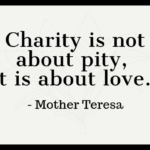When we talk about gender equality in India, we look at the statistics that says women in India earn 19% less than men. According to the Monster Salary Index (MSI), the median gross salary of a man in India stood at Rs. 242.49 for an hour, while it was Rs.196.3 for women. And while the statistic is factually accurate, there’s a lot that hides behind this gap. While the numbers are a comparison of the amount of money women and men get for the same amount of work and time, what should also be highlighted is the difference between opportunities and discrimination is represents.
It also doesn’t highlight how the wage gap affects women with different educational backgrounds, ages, family backgrounds and the kind of work they’re offered on the basis of these factors. In order to fulfill the challenge of closing the wage gap, these factors have to be visualized. Starting with the problem of the wage gap, it becomes evident that the gap between opportunities present for men and women are different and governed by various prejudices. Even now, when women are called for interviews, questions like “are you married?”, “will you quit if you get married?” “will staying late be a problem?” are inevitable, and so are their consequences.
There’s also the fact that marriage or having a child equates to less productivity at the workplace. These prejudices have hindered the chances of women entering the workforce and being granted positions of power. It might be surprising to realize that even in fields that are pre-dominantly associated with women such as healthcare, care giving services and social work, men earn 21% percent more than women. The survey also discovered that the wage gap is relatively lower in the initial period of joining employment, but becomes wider once the tenure increases significantly.
While men are given benefits and raises regularly, women who are working at the same post, for the same amount of time or even longer, are paid lesser and lesser. With over 12 years of experience, men start earning 15% more than their female counterparts. This is not just a statistic, but an indication of deep-rooted patriarchy and the fear of letting women work. The survey also discovered that half of the women believe that they will face discrimination at work after they are married, and they also believe that maternity leads to a perception that they are not committed to their professional lives and will quit due to them giving birth. Please note that no men have ever felt the need to do the same.
With patriarchy and gender-roles continuously creating ideologies that dictate the dichotomy between home and the world and the role that women and men play within these sectors, women miss out on essential opportunities that can lead to their personal development and economic empowerment. But the impact of the wage gap is not just personal; it can also be felt by the economic structures of our country. While having both women and men working, it’s obvious that productivity increases. It also introduces new workers in all sectors, and creates more opportunities for both formal and informal organizations to grow rapidly. The decline in opportunity and the rampant discrimination based on gender, not only hinders a whole gender but it also directly effects the economic development of our country and its sustainability.





